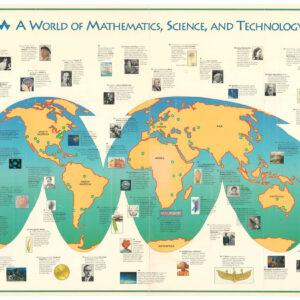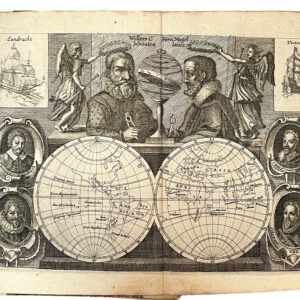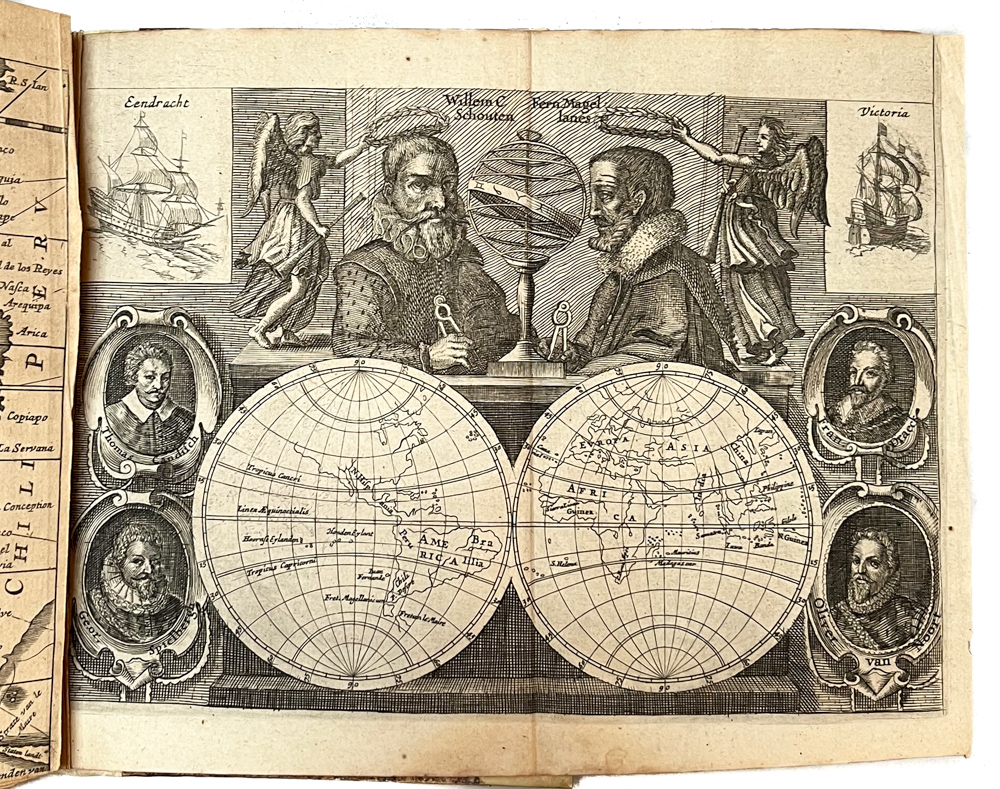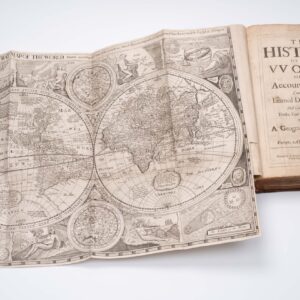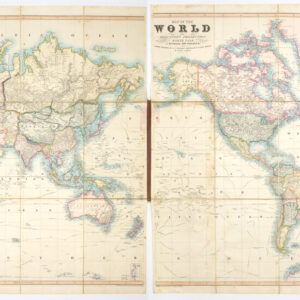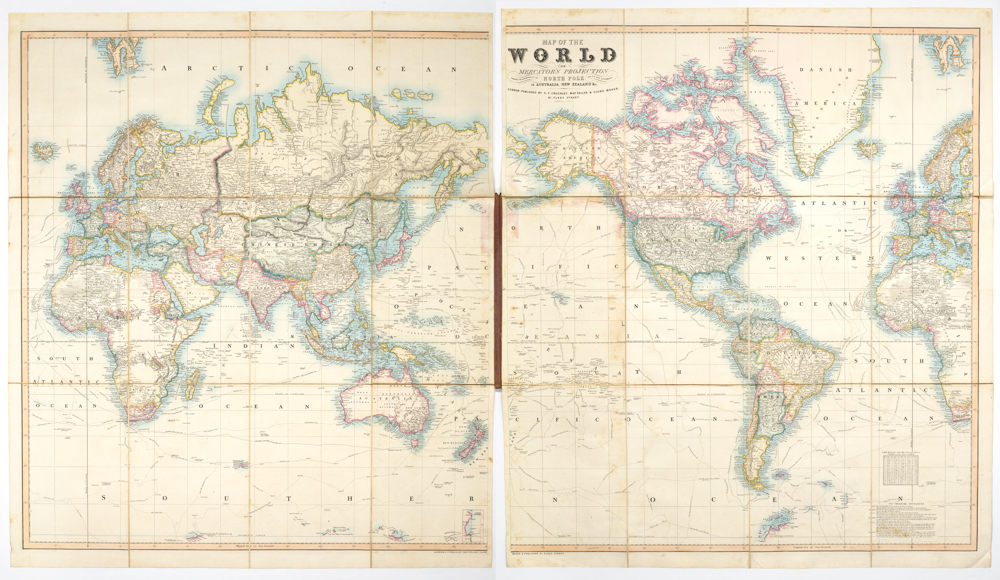A stunning 1801 Italian world map with allegorical imagery and Classical references.
Mappamondo Antico diviso nell’uno e nell’altro continente secondo la mente di Guglielmo Sanson.
Out of stock
Description
Listen to Michael talk about why he loves this map:
This is a gorgeous, hand-colored 1801 double-hemisphere world map by Giovanni Maria Cassini. It is the most beautiful example of this map we have ever seen, in excellent condition and with excellent colors. As an example, observe the striking colors and textures that comprise the heraldic symbol with its red cardinal hat with tassels at top center of the composition.
The map is decorative, at once both allegorical and accessible to the modern viewer. We immediately recognize representations of the four continents in the four corners of the map:
- Europe is represented by Europa on the back of Zeus turned into a bull, the scenography strikingly similar to a famous fresco uncovered at Pompeii.
- At the opposite corner, Asia sits atop a reclining camel. She waves a burning incense holder, and holds a bouquet of flowers and spices.
- For her part, Africa reclines regally as if on a throne, one arm resting atop a lion, and the other hand holding an elephant tusk. A cornucopia filled with grain represents North Africa’s important and enduring role as a supplier of wheat to Europe.
- And finally, America is a female warrior (Amazon); she wears a feathered diadem and raises a long spear, which she is about to thrust into a large reptile. It is the most savage scene of the four, reflecting a long tradition of depicting America as untamed and dangerous.
Cassini was a student of the great Italian classicist and artist Giovanni Battista Piranesi, and it is thus no surprise that this map is imbued with an intellectual trajectory that is rooted in Classical Antiquity. Geography was one of the great schools of learning in Antiquity and Cassini has spread references to classical authors in strategic positions throughout the map. These include quotations by Plato, Seneca, Aelianus, and more. There are multiple references to the mythical (?) island of Atlantis.
Census
This map was published in the third volume of Cassini’s Nuovo Atlante Geografico Universale delineato sulle ultime osservazioni, which was commissioned by the Calcografia Camerale in Rome. The first volume was published in 1792, the second in 1797, and then a third in 1801.
Cartographer(s):
Giovanni Maria Cassini (1745 – 1824), a disciple of Giovanni Battista Piranesi, was a geographer, cartographer, and engraver working in Rome for decades between the late 18th and early 19th centuries. He invented a new method of projection, called Cassini, famously used for the geographical atlas of the kingdom of Naples in 32 sheets signed by Giovanni Antonio Rizzi Zannoni.
Condition Description
Excellent condition with lovely color and generous margins.
References
Rumsey 14000.000.
